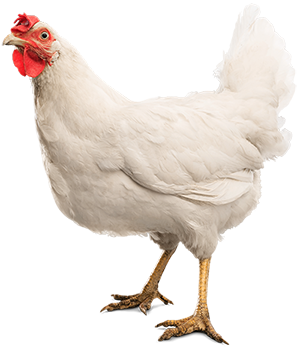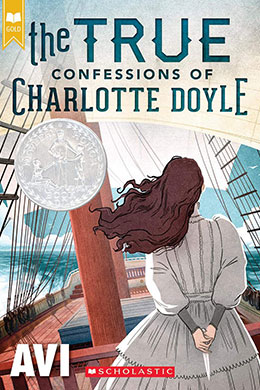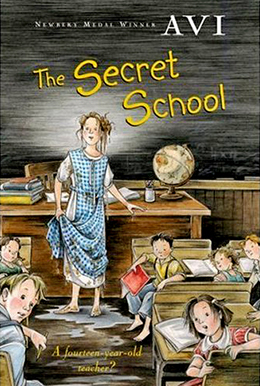
After three years of not going to schools — Covid — my visits have resumed.

Yesterday, when I pulled into the parking lot of Denver’s Park Hill Elementary School, I was immediately greeted by the clucking of chickens. A quick investigation informed me that the school not only had a community garden, but also a chicken coop on its grounds. The school building, originally built in 1901, is adorned with high, unlabeled bas-relief portraits of people, though I think I recognized Jefferson.
As I walked through the main entrance I was greeted by a sign saying, “Welcome to the home of the Panthers,” along with an image of a ferocious beast, an unlikely icon for a K–5 school.
(A brief chat with the principal informed me he had no idea who assigned such a logo. Almost always, these logos are ferocious male beasts. My favorite: Our Lady of Mercy Tigers.)
As I made my way to the front office to get my visitor’s badge, the school passed my first test of a good school; lots of bold student art was posted everywhere (rather than artistic classics, such as by Rembrandt, or Winslow Homer), recognizing kids for what they are, young people who love color and uninhibited shapes.
Then too, there was a sense of amenable chaos, a feeling of energy and enthusiasm, which promised engaged kids. Show me a school with neat, clean (and empty) hallways, and I know I’m in an uptight, controlling environment.
I was ushered into the auditorium where a bunch of girls were rehearsing a play, a retelling of an ancient Greek legend about how spiders came to be. Much arm waving and eye-rolling represented all kinds of emotion.
When kids filed in, any number of them were clutching a wide variety of my books. The feeling I sensed was one of excitement and interest as many eyes studied me with curiosity.
After a short introduction by an enthusiastic teacher — which happily did not sound like an obituary — I introduced myself and showed a short PowerPoint, which showed images of my home, my family, pictures of my elementary school, my fourth-grade class, and high school, the scathing comments of my English teacher on a paper as to my bad writing skills, my inept high school soccer team. Then briefly, images of my writing process, rewritten pages, outlines, and the like.
Then, for the remaining time, which is most of the time, I take questions, making a point of going from girl to boy, while ranging over the whole room to make sure I reach the various grade levels who have assembled.
The questions asked are the reasonable ones I am most often asked, “Where do you get your ideas?” “How long does it take you to write a book?” “If you weren’t a writer what would you do?”
Then there are some questions that pertain to specific books kids have read; “How did you get the character names in True Confessions of Charlotte Doyle?” Or “In The Secret School, how did you get the idea as to how Ida drives a car?”
Sometimes these questions are hard for me to answer because whereas a kid has just read a particular book, it’s one I wrote twenty years ago, or more. It’s a reminder that one of the joys of literature is that for the reader a new book is always new.
Then there are the quirky questions, “What do you think of adjectives?” “If you could be a character in one of your books, which one would it be?”
Throughout, my job is to respond to a question as if I have never heard it before and then give a reply that speaks to that particular student, indicating I recognize him or her as an individual.
My intention is to suggest that I am an ordinary person, someone who had to work hard to acquire writing skills. If there is any one theme, it is the centrality of reading as the key to a writer’s life and learning.
And what do I get out of this event? It’s not money. This was a neighborhood school, which I met pro bono.
First, it is exhilarating to be in a happy school, full of youthful energy. In today’s hard world, it’s full of much-needed hope. It’s also deeply reassuring to see that kids are reading books I have written.
Most of all, I regain a connection with my readers, a reminder that I am not writing for editors, publishers, reviewers, or Goodreads evaluators: I am writing for young people.
When I go back to my desk and resume writing, I see their faces as I try to create books that young people enjoy reading. It’s that simple. It’s that hard. And I love what I do even as I love my readers.


2 thoughts on “Visiting Chickens”
This brought tears to my eyes. As a retired elementary school teacher (West Grand School District, Kremmling, CO), I not only recognize your description of a vibrant, child-centered school but also an author who knows how to connect with students on a visceral level. On behalf of students and teachers alike, I thank you.
Today you met via zoom with our 5th — 8th graders at San Miguel School in Providence. Thank you for treating each boy’s question so thoughtfully and for bringing smiles to their (and our) faces as you encouraged reading and hard work.